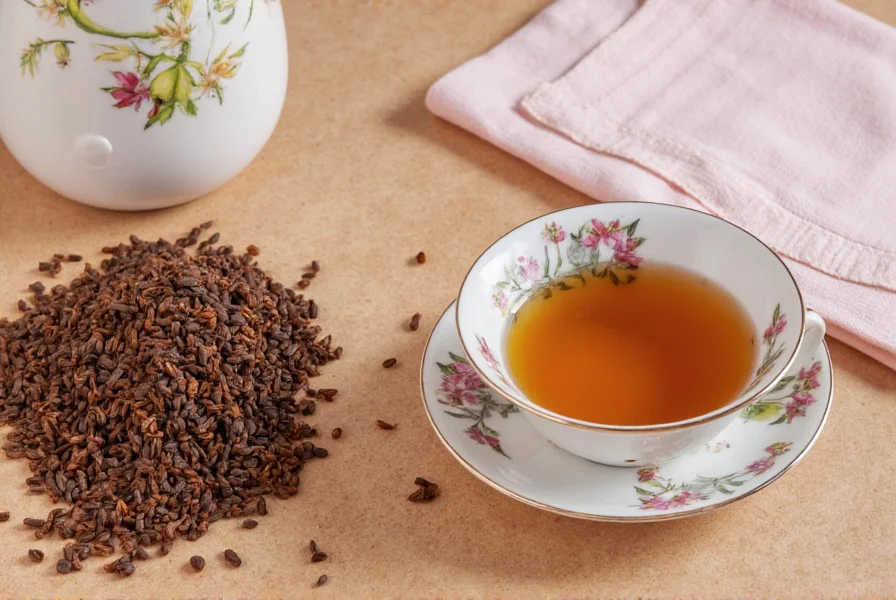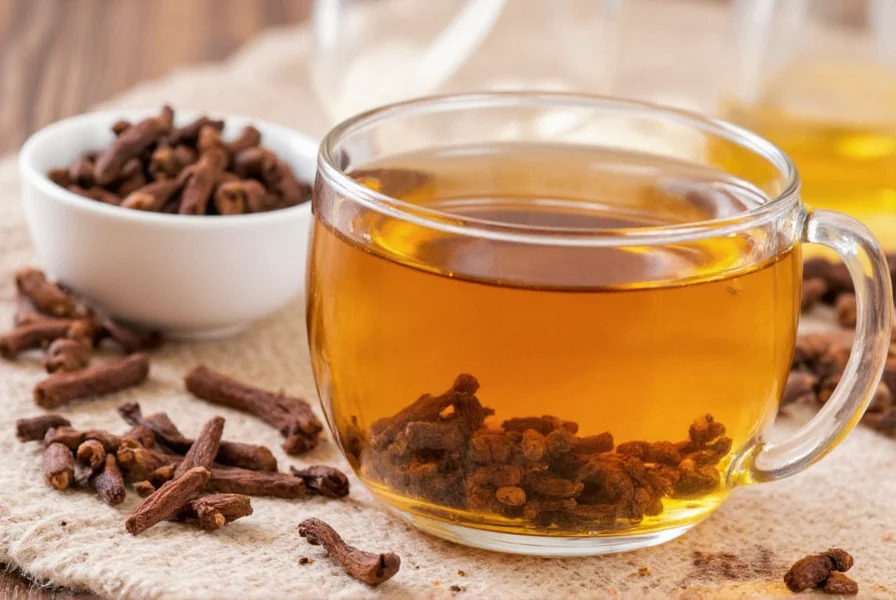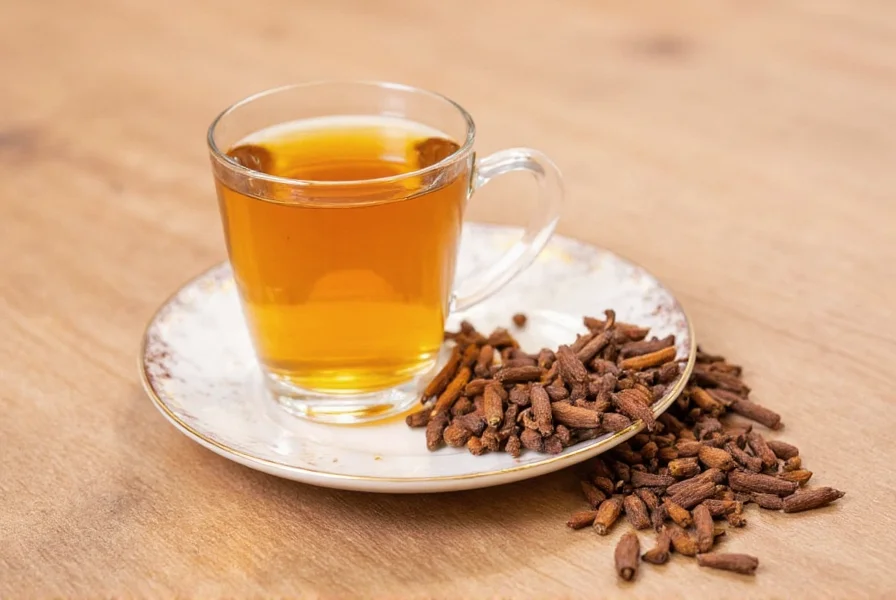For centuries, clove tea has been cherished across various cultures for its distinctive flavor and therapeutic properties. This fragrant herbal infusion, made from the dried flower buds of the Syzygium aromaticum tree, offers more than just a comforting drink—it delivers a wealth of health benefits backed by both traditional use and modern research. Whether you're seeking relief from a seasonal illness or simply want to incorporate more natural remedies into your daily routine, learning how to prepare authentic clove tea is a valuable skill that takes mere minutes to master.
Science-Backed Benefits of Clove Tea
Clove tea contains eugenol, a powerful compound making up 70-90% of clove's essential oil, which gives this beverage its remarkable medicinal properties. Research published in the Journal of Agricultural and Food Chemistry confirms that eugenol possesses significant antioxidant, anti-inflammatory, and antimicrobial effects. Regular consumption of properly prepared clove tea may help:
- Reduce oral bacteria and prevent bad breath
- Alleviate digestive discomfort and bloating
- Support immune function during cold and flu season
- Provide natural pain relief for toothaches and sore throats
- Regulate blood sugar levels according to preliminary studies
Unlike commercial herbal blends that may contain fillers, making clove tea at home ensures you receive the full spectrum of beneficial compounds without unnecessary additives.

Essential Ingredients for Authentic Clove Tea
The beauty of traditional clove tea lies in its simplicity. You only need a few quality ingredients to create an effective infusion:
| Ingredient | Quantity | Preparation Notes |
|---|---|---|
| Whole dried cloves | 5-6 pieces | Use whole cloves for best flavor extraction; avoid ground cloves which create sediment |
| Filtered water | 2 cups (16 oz) | Spring water yields best flavor; avoid distilled water |
| Fresh lemon (optional) | 1-2 slices | Add after brewing to preserve vitamin C |
| Raw honey (optional) | 1 teaspoon | Add after tea cools slightly to preserve enzymes |
Step-by-Step Clove Tea Preparation Guide
Follow these precise instructions to create the perfect cup of clove tea that maximizes both flavor and health benefits:
- Measure ingredients: Use 5-6 whole cloves per 2 cups of water for optimal concentration. Too few cloves yields weak tea; too many creates excessive bitterness.
- Boil water: Bring filtered water to a rolling boil in a small saucepan. Avoid using a microwave as uneven heating affects extraction.
- Add cloves: Once water reaches 212°F (100°C), add whole cloves and reduce heat to maintain a gentle simmer.
- Simmer properly: Allow cloves to simmer uncovered for 10-15 minutes. This duration extracts maximum eugenol without releasing excessive tannins that cause bitterness.
- Steep off heat: Remove from heat and let steep for an additional 5 minutes with lid on to capture volatile compounds.
- Strain carefully: Pour through a fine mesh strainer to remove all clove particles which can become unpleasantly sharp when overcooked.
- Enhance flavor: Add lemon or honey after tea has cooled to 140°F (60°C) to preserve their beneficial properties.
Three Popular Clove Tea Variations
While traditional clove tea stands beautifully on its own, these scientifically informed variations enhance specific health benefits:
Clove-Ginger Immunity Tea
Add 3 thin slices of fresh ginger during the simmering stage. The combination of eugenol from cloves and gingerol from ginger creates a synergistic effect that boosts immune response more effectively than either ingredient alone, according to research in the Journal of Medicinal Food.
Clove-Cinnamon Blood Sugar Tea
Include one 2-inch cinnamon stick during preparation. Studies suggest this combination may help regulate post-meal blood glucose levels more effectively than either spice alone, making it an excellent choice for metabolic health.
Clove-Lemon-Ginger Detox Tea
Add both ginger and fresh lemon after brewing. This trio works together to support liver detoxification pathways while providing a refreshing flavor profile. The vitamin C in lemon enhances the antioxidant capacity of the tea.

Professional Brewing Tips for Optimal Results
Master these expert techniques to elevate your clove tea preparation:
- Crush cloves slightly: Gently crack cloves with the back of a spoon before brewing to increase surface area and improve extraction efficiency by up to 30%.
- Control water temperature: Never exceed a gentle simmer. Boiling vigorously degrades delicate volatile compounds that provide therapeutic benefits.
- Use proper vessel: Glass or ceramic pots preserve flavor better than metal containers which can react with clove compounds.
- Timing precision: Set a timer—15 minutes is the maximum recommended simmering time before bitter compounds begin to dominate.
- Second infusion: Used cloves can be re-steeped once for a milder tea, though potency decreases by approximately 60%.
Safety Considerations and When to Avoid Clove Tea
While generally safe, clove tea requires some precautions:
- Limited to 1-2 cups daily due to potent compounds—excessive consumption may cause mouth irritation or digestive upset
- Avoid if taking blood thinners as eugenol has mild anticoagulant properties
- Not recommended for children under 2 years old
- Discontinue use if experiencing heartburn or acid reflux symptoms
- Pregnant women should consult healthcare providers before regular consumption
Unlike many herbal remedies, clove tea's effects are dose-dependent—more isn't necessarily better. The therapeutic window exists between 5-8 cloves per 2 cups of water, beyond which benefits plateau and potential side effects increase.
Frequently Asked Questions About Clove Tea
How long should I steep clove tea for maximum benefits?
For optimal extraction of beneficial compounds without excessive bitterness, simmer cloves for 10-15 minutes followed by a 5-minute covered steep off heat. This 15-20 minute total preparation time maximizes eugenol extraction while minimizing tannin release that occurs with longer brewing.
Can I use ground cloves instead of whole cloves for tea?
While possible, whole cloves are strongly preferred over ground cloves for tea preparation. Ground cloves create sediment that's difficult to strain and can make the tea gritty. Whole cloves provide more controlled release of essential oils and prevent over-extraction of bitter compounds that occurs more rapidly with ground spices.
When is the best time to drink clove tea for digestive benefits?
For optimal digestive support, consume clove tea 20-30 minutes before meals. This timing allows the tea to stimulate digestive enzyme production before food arrives. Alternatively, drinking clove tea 1 hour after meals can help alleviate bloating and indigestion. Avoid drinking immediately with meals as the strong flavor may interfere with taste perception.
How should I store leftover clove tea?
Store cooled clove tea in an airtight glass container in the refrigerator for up to 48 hours. The active compounds begin degrading after this period, reducing therapeutic benefits. Do not freeze clove tea as this damages the delicate volatile compounds. Always reheat gently without boiling to preserve maximum benefits.
Can clove tea help with toothache pain?
Yes, clove tea can provide temporary relief for toothaches due to eugenol's natural anesthetic and antibacterial properties. Swish cooled clove tea around the affected area for 30 seconds before spitting out. This delivers eugenol directly to the pain site. However, this is only a temporary measure—consult a dentist for persistent dental pain as it may indicate serious underlying issues.











 浙公网安备
33010002000092号
浙公网安备
33010002000092号 浙B2-20120091-4
浙B2-20120091-4